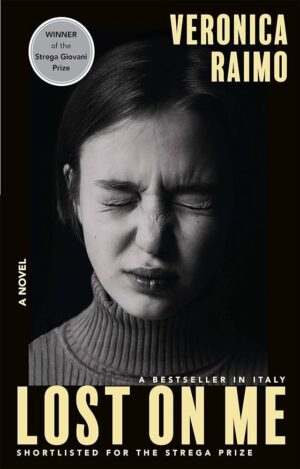Longlisted for the International Booker Prize 2024, Lost on Me by Veronica Raimo is a funny, fearless and gleefully bizarre work of Italian autofiction, chronicling one woman’s journey to authorhood. Told by Vero, now in her forties, it’s the story of her childhood in Rome and subsequent years spent trying to escape the clutches of a dysfunctional family. In a confessional outpouring that ranges from her struggles with constipation to what looks a lot like emotional abuse from her highly-strung mother, Vero’s tale is written in a self-proclaimed style of ambiguity.
Both Vero and her brother, Christian, are writers. Looking back, she attributes this to the utterly neurotic parenting they received, a hypothesis it’s hard to disagree with once the siblings’ somewhat unconventional upbringing is revealed.
Their mother had wanted more children. Unable to have them, an ‘army of never-born babies’ haunt her life, which is one governed by anxiety and a notable bias towards her son, the family genius. It’s a source of immense pride to her that at the age of four, Christian had not only learned to read but had memorised all the world capitals and could recite (in chronological order) the inauguration date of every U. S president. By contrast, Vero is seen as a child who ‘likes to draw.’
All hazardous activities are banned, so no bikes, skating, swimming, or indeed anything deemed likely to result in a cracked skull or accidental strangling. Instead, the siblings are cooped up in a home whose rooms their obsessive father is compelled to divide over and over, adding absurdly unnecessary walls and sliding panels. He has, at least, given them two bathrooms, although they’re only allowed one shower a week, making do with a ‘good rub-down with alcohol’ the rest of the time.
A seemingly unwise marital pairing, Vero’s parents’ mental instabilities often tip into paranoia. Following the Chernobyl nuclear plant disaster of 1986, the children are banned from eating fresh food for three years (only canned goods dated before 26th April 1986) thereby avoiding radiation disease, but teetering on the brink of scurvy.
After a childhood like this, it’s no wonder that adolescence brings a yearning for escape and independence. The question for the reader is whether it’s ever possible to truly leave one’s childhood behind. Not if Vero’s mother has anything to do with it, as she launches into maternal overdrive.
Raimo is a very funny writer with a gift for wry observation and absurdity (top marks to translator, Leah Janeczko, who captures her authorial voice brilliantly). As she leads us towards Vero’s adulthood with its procession of men, escapades and mishaps, it becomes apparent that Vero has misremembered or altered some of her personal history.
In amongst the laugh-out-loud moments and craziness, this clever and original novel is laced with insightful reflections on life and the nature of memory and writing.
A worthy prize contender.
Lost on Me by Veronica Raimo is translated by Leah Janeczko and published by Virago, 224 pages.





